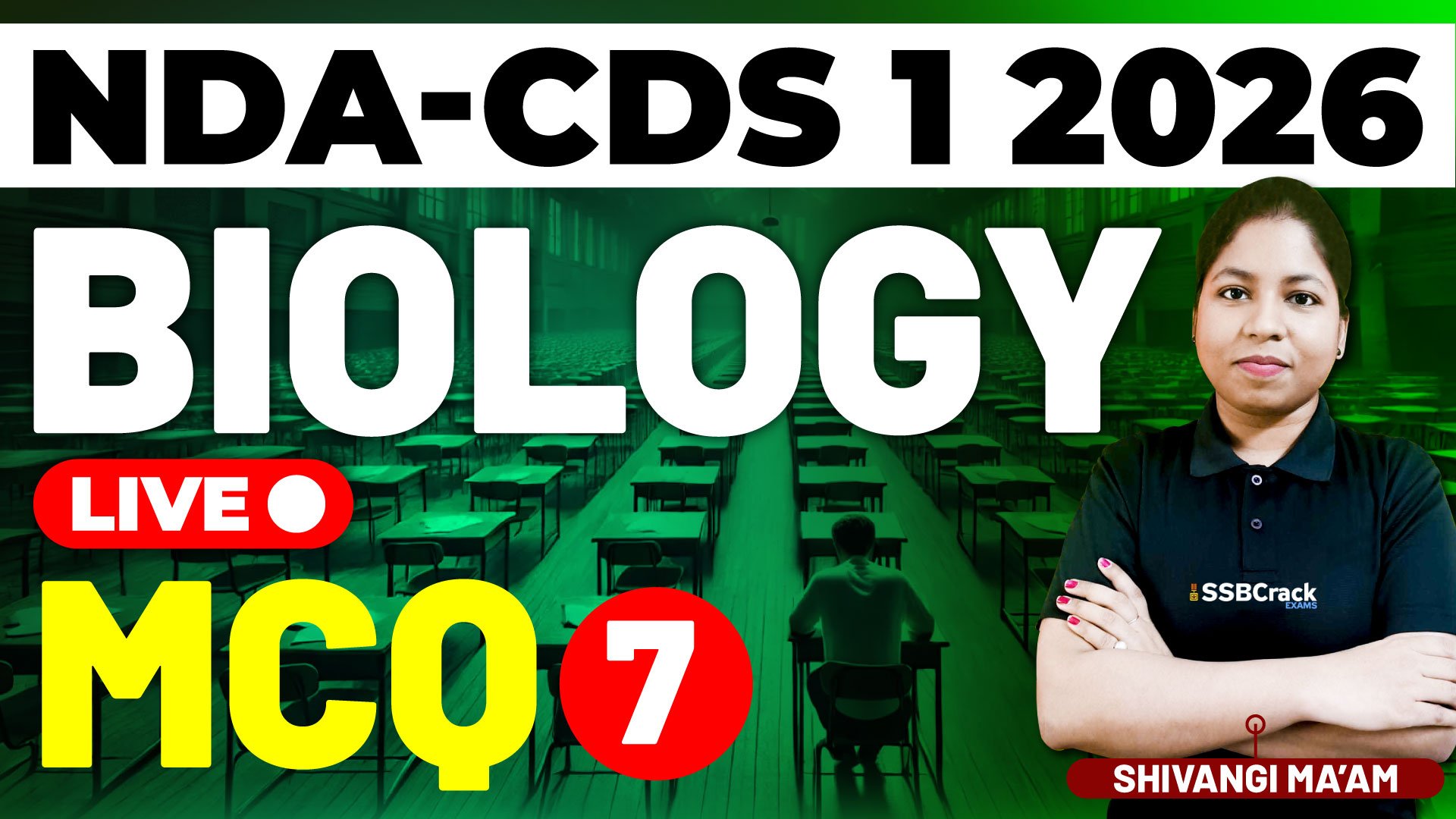The National Defence Academy (NDA) and Combined Defence Services (CDS) examinations are prestigious national-level tests conducted by the Union Public Service Commission (UPSC) to select candidates for the Indian Army, Navy, and Air Force. The NDA & CDS 1 Exam 2026 will assess not only your aptitude and general knowledge but also your understanding of fundamental concepts in Science, including Biology.
This session focuses on Class 7-level Biology MCQs, covering two key themes—Human Physiology and Plant Tissues—which form the base for more advanced biology topics asked in defense entrance exams. The goal is to strengthen conceptual clarity and improve speed and accuracy for the objective-type questions.
Main Subtopics
A. Human Physiology
Understanding how the human body functions is essential for general science and defense-related awareness.
Key subtopics include:
- The Digestive System – Organs, enzymes, and the process of digestion.
- The Circulatory System – Structure and function of the heart, blood, and blood vessels.
- The Respiratory System – Mechanism of breathing and gas exchange.
- The Excretory System – Role of kidneys, nephron structure, and urine formation.
- The Nervous System – Brain, spinal cord, and reflex actions.
- The Skeletal and Muscular Systems – Structure, types of muscles, and movement coordination.
- The Endocrine System – Major glands and their hormones.
MCQ Focus: Functions, organs, and processes; diagrams; matching organs to systems; flow of substances (like oxygen or blood).
B. Plant Tissues
Plants have specialized tissues that perform unique functions essential for growth and survival.
Key subtopics include:
- Definition and Types of Plant Tissues – Meristematic and permanent tissues.
- Meristematic Tissue – Apical, intercalary, and lateral meristems and their roles in growth.
- Permanent Tissue – Simple (parenchyma, collenchyma, sclerenchyma) and complex tissues (xylem, phloem).
- Functions of Plant Tissues – Transport of water, minerals, and food; mechanical support.
- Difference Between Animal and Plant Tissues.
MCQ Focus: Structure–function relationships, types of tissues, examples, and diagrams (cross-sections of stem and root).
Class Highlights
- Interactive MCQs practice: Concept-based and exam-oriented questions.
- Quick revision notes: Key facts and definitions.
- Visual learning: Diagrams and flowcharts for better understanding.
- Exam tips: How to eliminate wrong options quickly in NDA/CDS-type questions.
Conclusion
This class bridges school-level biology concepts with the scientific reasoning expected in the NDA & CDS 1 Exam 2026. A clear understanding of Human Physiology and Plant Tissues not only strengthens your biology foundation but also sharpens analytical skills useful for all sections of the exam. Consistent MCQ practice will help you develop speed, accuracy, and confidence for tackling the Science portion effectively.







